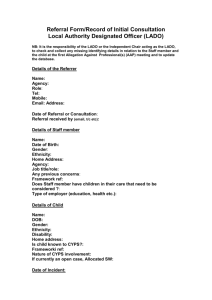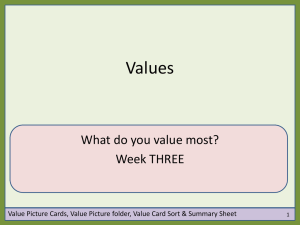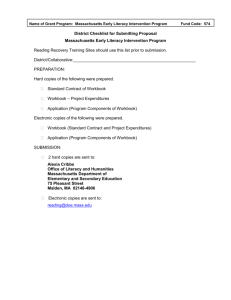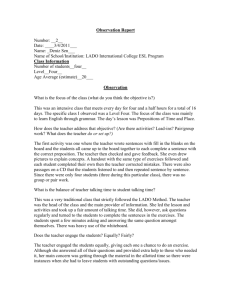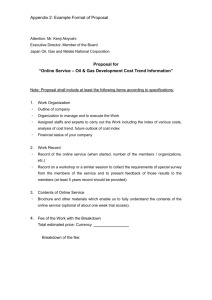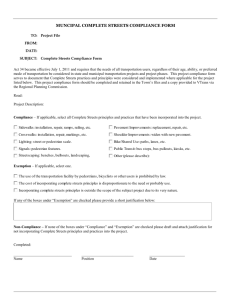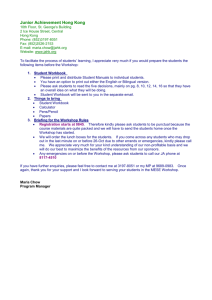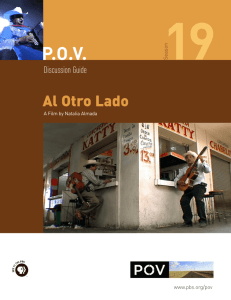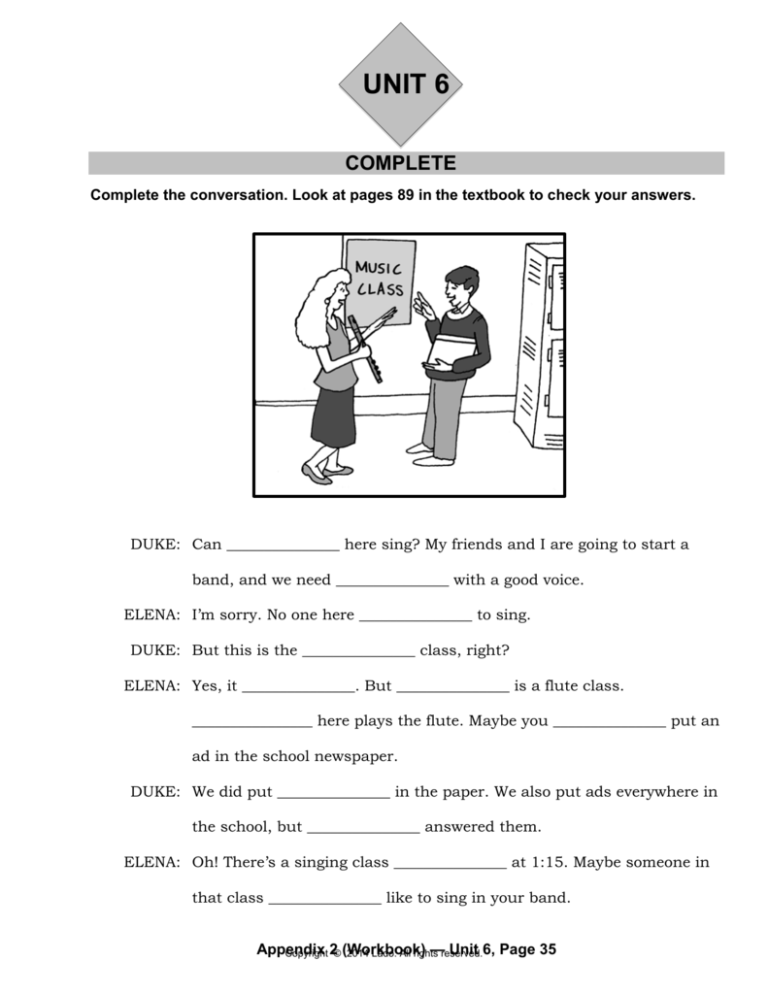
UNIT 6
COMPLETE
Complete the conversation. Look at pages 89 in the textbook to check your answers.
DUKE: Can _______________ here sing? My friends and I are going to start a
band, and we need _______________ with a good voice.
ELENA: I’m sorry. No one here _______________ to sing.
DUKE: But this is the _______________ class, right?
ELENA: Yes, it _______________. But _______________ is a flute class.
________________ here plays the flute. Maybe you _______________ put an
ad in the school newspaper.
DUKE: We did put _______________ in the paper. We also put ads everywhere in
the school, but _______________ answered them.
ELENA: Oh! There’s a singing class _______________ at 1:15. Maybe someone in
that class _______________ like to sing in your band.
Appendix
—reserved.
Unit 6, Page 35
Copyright 2© (Workbook)
2014 Lado. All rights
WRITE
A. Complete the sentences about Elena and Ray’s French class. Use somebody,
everybody, or nobody.
1. Their French teacher is very interesting. Everybody likes her.
Nobody
2.
is bored in her class.
There is going to be a difficult French test tomorrow.
_________________ has to study for it.
3.
The map of France is not on the wall today.
_________________ moved it.
4.
This lesson was short and easy.
_________________ could finish it.
5.
Yesterday they had to read a long story. It was very difficult.
_________________ could understand it.
6.
Another student helped Elena. Now Elena understands the difficult story.
_________________ helped her with the new words.
7.
The French test was difficult.
_________________ did well on it.
8. The teacher asked a difficult question.
_________________ knew the answer.
B. Complete the sentences with something, anything, everything, nothing, somewhere,
anywhere, or nowhere.
1.
It was Lisa’s birthday. Her parents gave her a present.
We gave her
2.
something , too.
John had three dollars this morning. Now he has two dollars.
He also bought _________________ for Lisa.
Appendix
—reserved.
Unit 6, Page 36
Copyright 2© (Workbook)
2014 Lado. All rights
3.
Lisa wasn’t at home, at work, or at the restaurant.
John couldn’t find her _________________.
4.
Lisa went to Seattle, but her husband Tom stayed home.
Tom went _________________.
5.
Tom doesn’t enjoy anything. He’s always unhappy.
_________________ makes him happy.
6.
I took two suitcases on my business trip and returned with only one.
I lost a suitcase _________________ at the airport.
7.
I looked very hard for it.
I still couldn’t find it _________________.
8.
It had all my clothes in it.
I lost _________________.
C. Write short answers based on the picture, using nobody, everybody, somebody,
nothing, or something.
1. Who’s washing the dishes?
Nobody.
3. Who’s waiting at the door?
________________________________
2. Who’s eating?
4. What’s on the stove?
________________________________
________________________________
Appendix
—reserved.
Unit 6, Page 37
Copyright 2© (Workbook)
2014 Lado. All rights
5. Who is at the window?
________________________________
6. Who’s angry?
8. Who’s sitting on the chairs?
________________________________
9. Who’s opening the door?
________________________________
7. What’s on the floor?
________________________________
10. What’s in the bowl on the table?
________________________________
________________________________
D. First, write the past tense of the verbs.
Then complete the paragraph with the
verbs.
drive
→ ________________________
ride
→ ________________________
sell
→ ________________________
tell
→ ________________________
Yesterday the Fong family _______________ to the country. It was a long trip, so
they sang and _______________ stories in the car. They wanted to visit Mrs. Fong’s
parents. Mrs. Fong’s parents used to live on a farm. They _______________ the farm,
but they still live in the country. The kids love to ride horses, and their grandparents
have two. They _______________ all afternoon.
Appendix
—reserved.
Unit 6, Page 38
Copyright 2© (Workbook)
2014 Lado. All rights
READ
E. Read the passage. Then circle the correct answer.
In Japanese cities, the streets are always very busy. There are people
everywhere, and everyone is going somewhere. They walk, ride bicycles, and
drive cars. Some people take taxis or the trains.
Many people work in the streets, too. Some people fix shoes. Some people
sell newspapers, and others sell food—fresh fish or cold rice. The food comes
in boxes made of wood. You can always see something interesting in the
streets of Japanese cities.
1. In Japanese cities, where is
everyone going?
a) By train.
b) Nowhere.
c) Somewhere.
4. What do people sell in the
streets?
a) Everywhere.
b) Nothing.
c) Many different things.
2. What do people ride in the
streets?
a) They drive cars.
b) Bicycles.
c) Everywhere.
5. How do they sell food?
a) In boxes made of wood.
b) Fresh fish and cold rice.
c) Many people do.
3. Who works in the streets?
a) Everyone does.
b) No one does.
c) Many people do.
6. What can you always see
in the streets?
a) Very interesting.
b) Nothing.
c) Something interesting.
WORD GROUPS
Circle the word or expression that does not belong.
1. lend, pool, borrow
6. cards, yoga, exercise
2. intermission, holiday, vacation
7. algebra, geometry, basketball
3. marvelous, too bad, wonderful
8. Oregon, French, California
4. recipe, cookbook, baby
9. radio, dictionary, television
5. would rather, cannot, prefer
10. study, homework, shopping
Appendix
—reserved.
Unit 6, Page 39
Copyright 2© (Workbook)
2014 Lado. All rights
COMPOSITION
Write a paragraph about the kind of exercise you get. Use the clues to help organize
your paragraph.
1.
2.
I used to
---
I have so much
ski every winter,
swim,
___________,
---
work
homework
___________
-----
but now I…
--------
because I…
3.
I don’t exercise much, and I’m getting a little
--
4.
exercising
swimming
______________
----
I would like to start
-----
I used to…
lazy.
out of shape.
_________.
soon.
.
______________________________________________________________________________
______________________________________________________________________________
______________________________________________________________________________
______________________________________________________________________________
______________________________________________________________________________
______________________________________________________________________________
______________________________________________________________________________
______________________________________________________________________________
Appendix 2 (Workbook) — Unit 6, Page 40
Copyright © 2014 Lado. All rights reserved.

